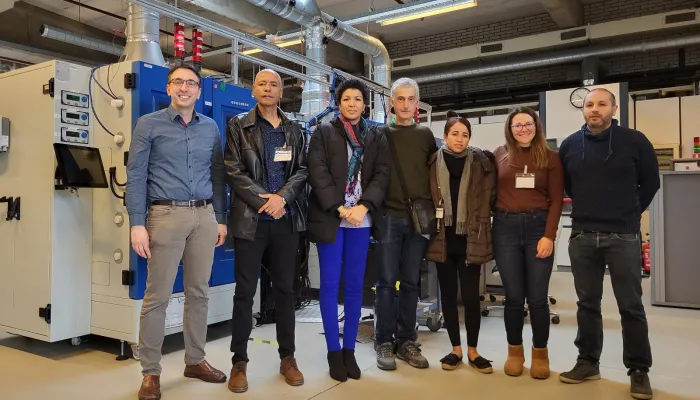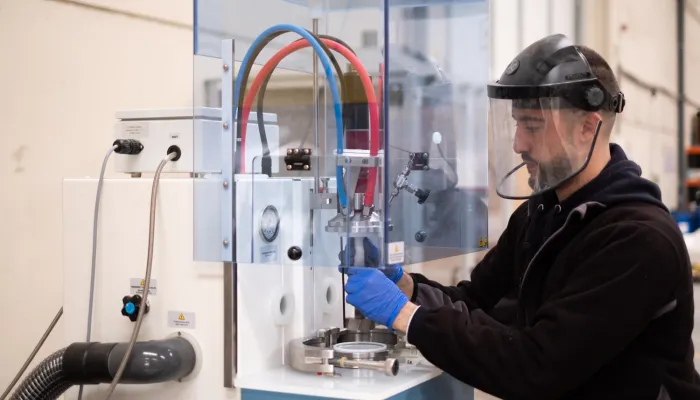What do we think about plastics?

The Organization of Consumers and Users (OCU) conducted a survey of 1,219 Spaniards aged 18 to 74 to find out to what extent consumers are involved in recycling and to understand their habits and perceptions regarding plastic packaging.
The OCU survey is part of the European Research Project CIRC-PACK, coordinated from Spain through CIRCE. The project is funded by the European Commission and aims to contribute to the development of a more sustainable plastic production chain, less dependent on fossil fuels and more oriented towards a circular economy. The results of the survey reveal important aspects to consider:
What do we think about plastics?
- In Spain, we are aware of the importance of addressing plastic waste; 92% recognize that plastics are a problem for the planet. However, the reality is that environmental concerns are not the primary criteria guiding our choices when purchasing packaged products like food, detergents, or hygiene products. Quality and price still come first.
- Environmental factors such as recyclability, potential reuse, and the absence of harmful substances do influence purchasing decisions, but only moderately.
What do we think about plastic packaging for household products?
- 11% always avoid buying or using products with plastic content, and 8% do not buy products wrapped in it.
- 43% say they frequently encounter unnecessary packaging, and more than half often find that they are given packaging that is too large for the size of the product.
Do we separate waste at home?
- 69% of Spaniards claim to systematically separate plastic waste at home, compared to 8% who say they never do. The remaining 23% admit that, although they do separate waste, they do not do so very strictly.
- Among the most common reasons for not separating household waste or for not doing it better are the need for too many specific containers at home and the fact that collection points on the street are far from their residence.
Do you buy supermarket bags or bring your own? Would you pay to use biodegradable plastic bags?
- Six out of ten Spaniards (59%) bring their own bags (from previous purchases, cloth bags, etc.), and only 13% say they do not use any type of bag.
- 60% of consumers have never been offered the option to use biodegradable bags (or bags made of biological materials), although 82% of those surveyed would be willing to pay to use them. However, they wouldn’t pay too much; 18% would not pay anything, and only 19% would pay more than 10 cents.
What do you think about new plastic materials, from biological or biodegradable sources?
- Many consumers would be willing to make changes, although not equally for all products. For example, 58% of surveyed Spaniards would opt for biodegradable plastic for coffee capsules, while for hygiene products like shampoo, this figure drops to 37%.
- Spaniards prefer to buy products packaged in biodegradable plastic rather than in plastic from biological sources and are willing to pay a little more for these new packages (71%). There is also a significant percentage that is not willing to pay any extra.
- However, the information about these new materials, their advantages, and differences is insufficient, as 49% of those surveyed lack adequate information, and 39% feel only partially informed.
- Information about the characteristics and sustainable advantages seems key to the success of their implementation and, therefore, to progress in solving the plastic problem. However, only 30% of respondents believe they are well informed about the consequences of plastic use, and even fewer are well aware of the national and EU policies on the matter.
Change, a responsibility for all
Given the results of this survey, OCU believes that Spanish citizens are largely inclined towards a change in recycling and environmental care practices.
Additionally, the Organization believes that it is possible to take simple measures in daily life to avoid massive plastic consumption, such as buying products in bulk or avoiding short-lived plastic products like straws, plastic cups and plates, wipes, cotton buds, etc.
Furthermore, OCU believes there are important measures that depend, on one hand, on the will of public authorities (promoting the use of recycled materials, reducing plastics that end up in landfills, or boosting the circular economy) and, on the other hand, on manufacturers to get involved from the eco-design stage to combat a material that threatens to suffocate the planet.






